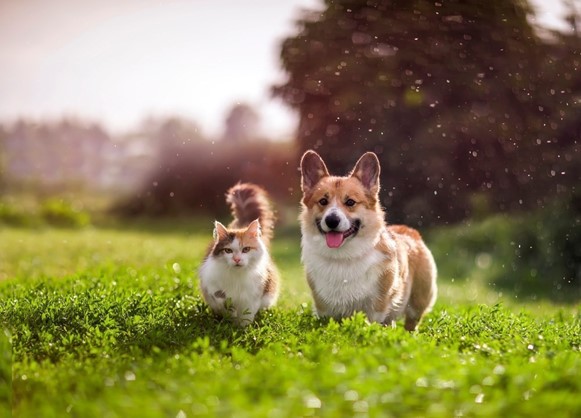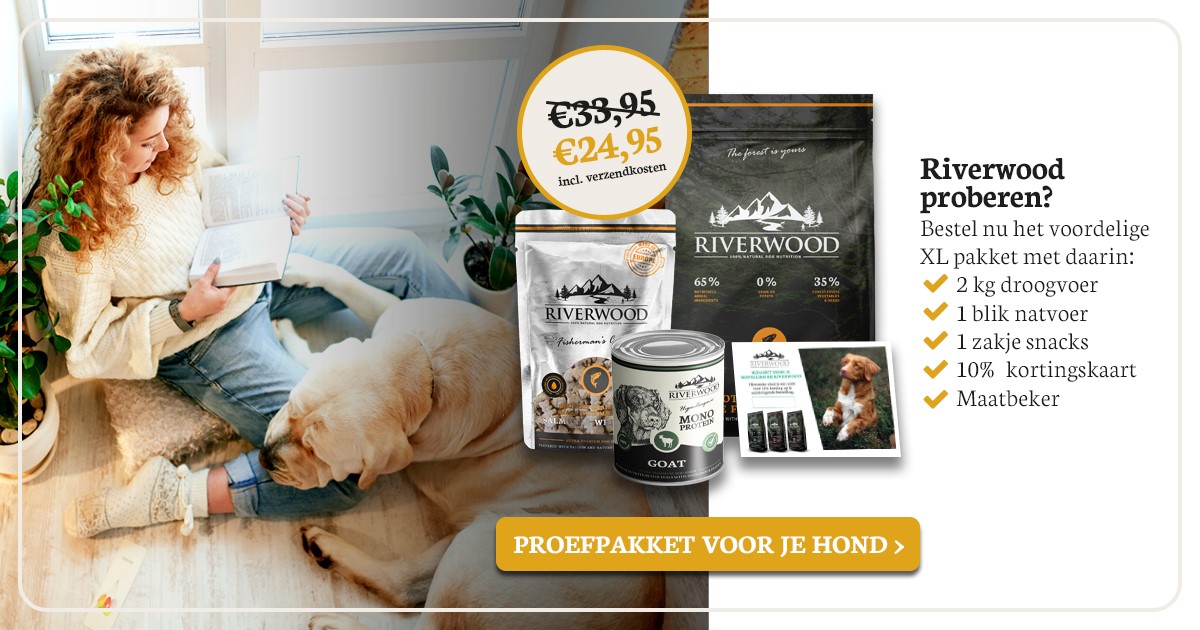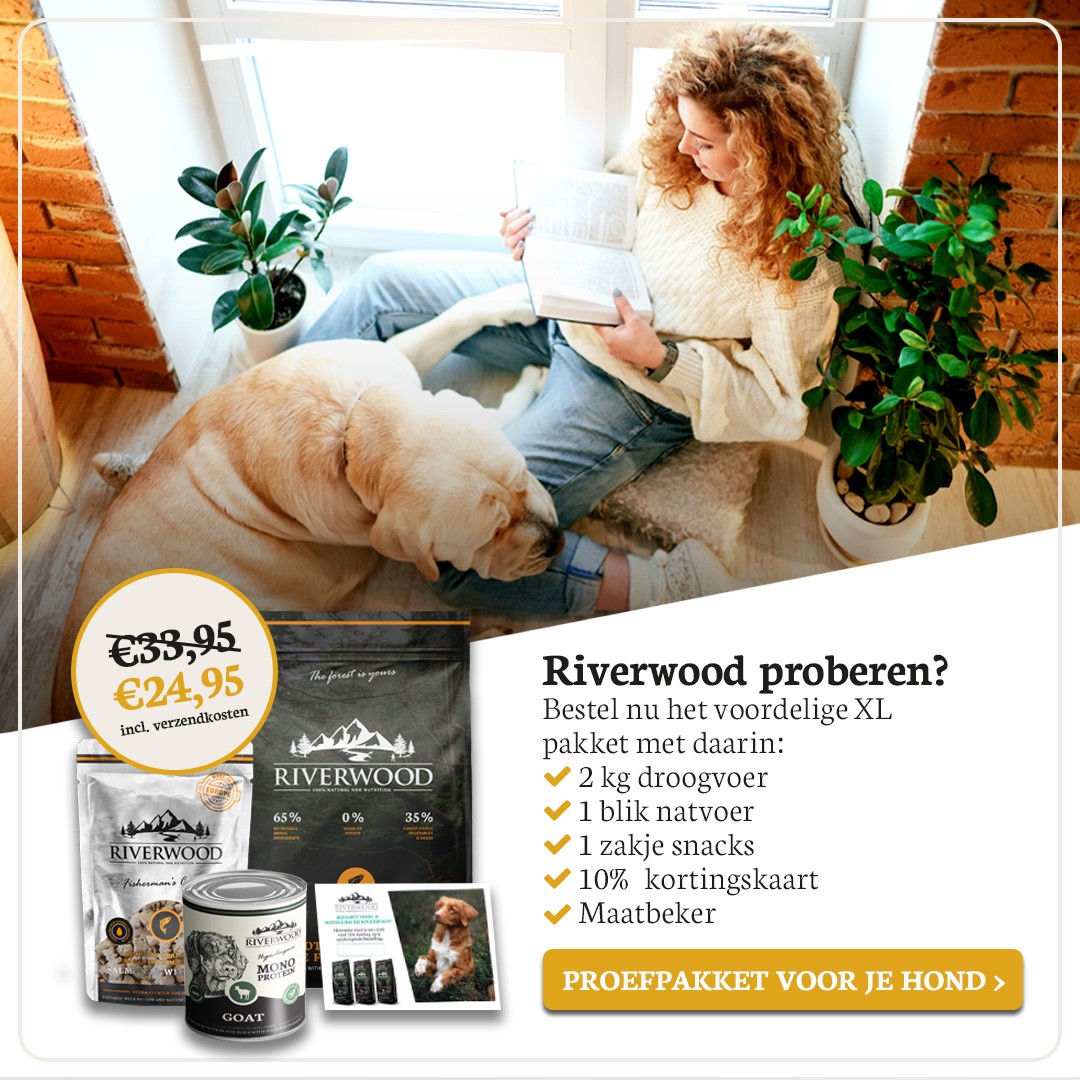Obesity in pets: here's what you need to know!
As much as you like to spoil your pet, it is not advisable to do so too often through food. Not only do many people suffer from obesity, it is also a common problem in pets. It is estimated that as many as 35% of pets in the Netherlands are overweight. Just like in humans, obesity in pets can result in annoying health problems. In this blog you can read more about the risks of obesity in pets, how to recognize obesity and how you can make your pet lose weight responsibly.

Causes of pet obesity
The cause of obesity in pets is actually quite simple and does not differ from the cause of obesity in humans. In fact, pet obesity is caused by eating too much food and not exercising enough. Overfeeding is often the biggest problem here. Whether it is feeding the wrong food, too large portions or offering too many snacks and extras; pets only need a certain amount of calories and if they are fed too much, these calories are converted into fat. The pet's age also plays a role; older animals use less energy and therefore tend to gain weight more quickly. In addition, a pet that is on certain medications or can exercise less due to health problems is also more likely to be overweight. Finally, some breeds (in dogs these include a Labrador Retriever or a Beagle and in cats a European Shorthair or Medium Hair) have a genetic predisposition to become heavier. The animals of these particular breeds seem to be constantly looking for food, and their appetites sometimes seem to have no off switch.
Risks of pet obesity
Overweight pets not only live shorter lives, but also experience more difficulties in their lives. Many pets have difficulty moving, run out of breath quickly and have chronic joint pain. Skin and coat problems are also adverse effects of obesity. Furthermore, overweight animals may experience complications from anesthesia and surgery. Finally, obese dogs and cats have a less functioning immune system and are more susceptible to certain diseases, such as heart disease, diabetes and cancer.
How do you know if your pet is overweight?
Because weight gain usually happens gradually, not all dog and cat owners always realize that their pet has gained weight and therefore may be overweight. Obesity can occur in any animal at any age, but usually overweight occurs when the animal is mature and fully grown.
To determine if your pet is overweight, it is important to know what the animal's ideal weight is. The ideal weight depends on the animal's breed, size, age and level of activity. A dog or cat is overweight if it is 5 to 10% heavier than its ideal body weight. Is your pet 15 to 20% heavier than its ideal body weight? Then it is even obese.
Please note that every animal is an individual and can differ in stature regardless of breed standards.
You can easily monitor your pet's weight yourself. At an ideal weight, the animal's ribs are not visible but can be easily felt. Viewed from above, you can clearly see the waistline. At overweight, the ribs are not visible and difficult to feel because of the layer of fat. Also, a waistline can hardly be seen. Another way to keep track of weight is to weigh your pet regularly.
How can you help your pet lose weight?
If you want your pet to lose weight, it is important to modify its lifestyle. This includes giving the animal more exercise and proper nutrition. If the animal is severely overweight, it is advisable to work with a veterinarian to establish a treatment plan. If necessary, the animal will have to temporarily switch to special diet food. Has your dog or cat suddenly gained a lot of weight? If so, also contact your veterinarian to rule out possible medical causes.
Have any medical causes been ruled out? Below we share some tips on how to help your pet lose weight yourself:
- Choose good nutrition. If your pet is overweight, it is wise to feed food made specifically for weight management. These foods contain easily digestible sources of protein (such as venison or turkey, for example) and contain fewer calories. In addition, they are enriched with a combination of healthy fruits and vegetables, effective herbs and a variety of vitamins and minerals. In the Riverwood range, the variant with Deer, Lamb and Rabbit for dogs and the variant with Deer, Lamb and Boar for cats are specially formulated for weight management. Please note that these foods are not special diet foods.
- Weigh the amount of food and snacks. This will prevent your pet from getting too much food. Would you like to spoil your four-legged friend every now and then? Then give slightly less than the daily recommended amount of food. You can also choose to use part of the daily recommended amount of food as a reward.
- Give responsible snacks. Many snacks contain many calories. When you still want to spoil your dog, choose healthy snacks. Healthy snacks contain natural ingredients and no added sugars or salt. Check out Riverwood's range of healthy dog reward snacks here.
- Get more exercise. For example, make your dog's daily rounds a little longer or go swimming with him. Keep in mind that you need to build this up slowly to avoid injury if your dog is not used to extra exercise. For extra exercise for your cat, you can play with him for a while every day and, for example, feed his food at height.
- Offer the food in game form. When pets have to work for their meals, this also provides extra exercise. Hide the kibble in a sniffing mat or hide it in different places around the house. Wet food can be given in a Kong or on a Lickimat. Making them work for their food is also relaxing for the animal!
- Keep a feeding diary. This way you are aware of all the food your pet takes in one day and can more easily figure out where it goes wrong if it appears your four-legged friend is not losing weight.
With the above tips, you and your pet can battle excess pounds. Note that it is important that your pet lose weight gradually and responsibly. That is, the animal should not lose weight too quickly. A weight loss of 1 to 2% of body weight per week is healthy.
Many pets already enjoy Riverwood every day. Would you also like your dog or cat to feast on our delicious foods and are you curious which variety would suit your dog or cat best? Then answer a few questions about your dog here or about your cat here and order an inexpensive sample pack.




